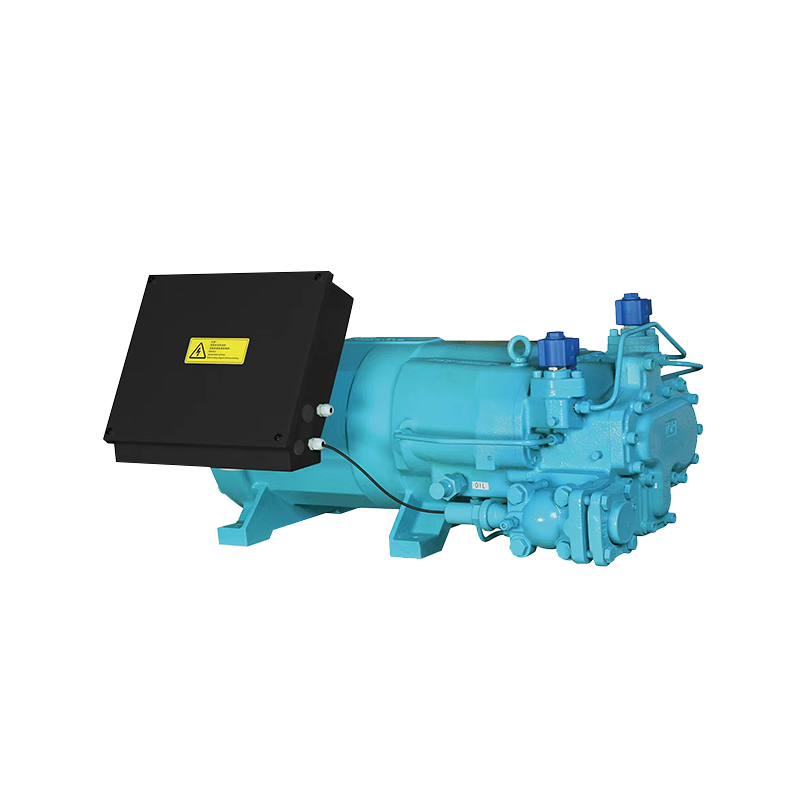Compressors are the "core" of industrial and commercial refrigeration, air conditioning, and various pneumatic systems, and their performance and stability are crucial. However, compressor failure is a common cause of system downtime and high repair costs. Understanding and addressing these main causes is key to ensuring the long-term efficient operation of equipment.
Content
1. Lubrication Issues: The "Hidden Killer" of Compressors
Insufficient lubrication or deterioration of lubricating oil quality is one of the most common causes of compressor failure.
Lubricating Oil Contamination:
Moisture, acidic substances, metal shavings, or refrigerant decomposition products in the system can contaminate the lubricating oil, reducing its lubricating performance and leading to excessive wear on bearings and moving parts.
Insufficient Lubricating Oil:
Low oil levels cause direct friction between moving parts, generating high temperatures, ultimately leading to compressor seizure or motor burnout.
Incorrect Lubricant Selection:
Using lubricating oil that does not meet the manufacturer's specifications may result in the oil being unable to withstand high temperatures or reacting chemically with the refrigerant.
2. Electrical Faults: Challenges to Motors and Circuits
For all electric compressors, the electrical system is the power source; any electrical abnormality will directly lead to shutdown.
Voltage Issues:
Sustained low voltage, high voltage, or a single phase loss in a three-phase power supply can cause motor overheating or tripping of protection devices. Especially during single-phase operation, the motor windings will burn out rapidly.
Winding Faults:
Short circuits, open circuits, or grounding in the motor windings, usually caused by insulation aging, overheating, or moisture, are one of the main causes of compressor failure.
Contactor or Protector Faults:
Frequent starts and stops or poor contact can cause contactor burnout, while improperly configured or faulty thermal overload protectors can incorrectly disconnect the power supply.
3. System Overheating and Overload: Exceeding the Compressor's Capacity
Overheating and overload can significantly shorten the compressor's lifespan and may cause immediate failure.
Excessive Condensing Pressure:
A dirty condenser, excessively high ambient temperature, or insufficient cooling water can all lead to increased discharge pressure, causing the compressor to operate beyond its design load, increasing energy consumption and causing internal overheating.
Excessive Return Temperature:
Insufficient refrigerant liquid return cooling of the motor, or poor insulation of the suction line, can cause the compressor to draw in high-temperature gas, severely affecting motor cooling and the lifespan of the discharge valve assembly.
Frequent Start-Stops:
Starting the compressor too frequently in a short period of time can cause the motor to restart before it has fully cooled down and the pressure is balanced, resulting in excessive stress on the motor and electrical components.
4. Refrigerant Circulation Problems: Impact on the Compressor Body
Proper refrigerant circulation is crucial for the compressor.
"Liquid Slugging":
Liquid slugging occurs when the compressor draws in liquid refrigerant instead of gaseous refrigerant. The incompressible liquid can cause devastating mechanical impacts on the piston, valve plates, and connecting rods. This is usually caused by improper expansion valve adjustment or poor defrosting.
Refrigerant Leakage:
Leaks can lead to insufficient system pressure and reduced cooling capacity, while also carrying away lubricating oil and accelerating wear.
Clogging by Impurities:
Ice blockage and dirt blockage (such as welding slag and oxide scale) inside the system can restrict flow, affecting the compressor's normal intake and exhaust.
Prevention is better than cure. To avoid high compressor repair and replacement costs, companies should strictly implement regular preventative maintenance plans, including: regularly checking lubricating oil quality and level, cleaning the condenser and evaporator, checking electrical connections and voltage, and ensuring that the refrigeration system pressure and temperature are within the design parameters. Only in this way can you ensure the long-term stable and efficient operation of your critical equipment—the compressor.

 English
English Español
Español عربى
عربى русский
русский











